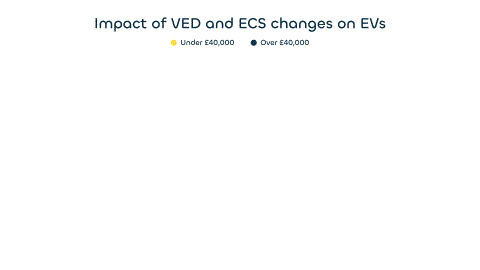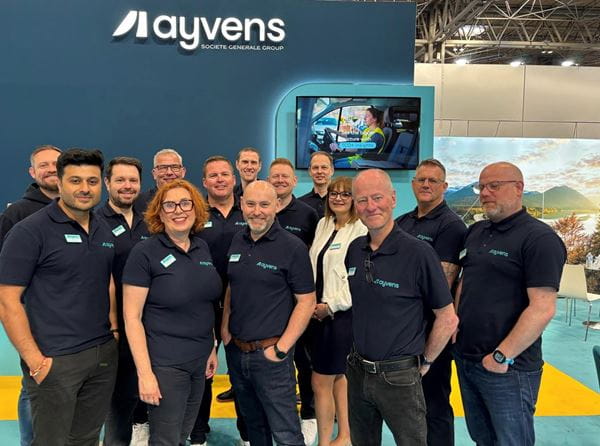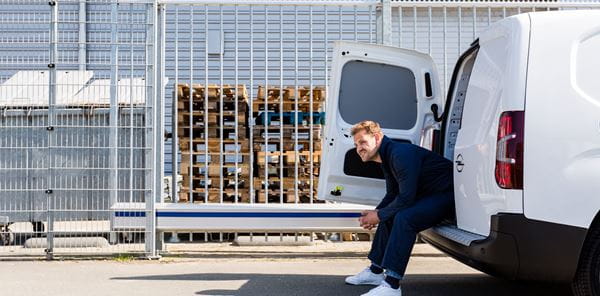
How can EV salary sacrifice benefit your organisation?
Phil Jones, specialist consultant at Ayvens UK, looks ahead at changes to salary sacrifice schemes, and why they’re still beneficial for employers as operating costs rise.
The new financial year is only a few weeks away, with some important tax changes looming for employers. Although the cost of workplace benefits will rise from April, an electric vehicle (EV) salary sacrifice scheme can be an effective way to mitigate those effects and provide an attractive benefit for staff. Here’s how.
What is EV salary sacrifice?
Salary sacrifice schemes enable drivers to lease a car through their employer and pay for it using their pre-tax income. As long as that vehicle emits 75g/km CO2 or less, both parties are taxed based on the remaining salary and the value of the car as a benefit, instead of the monthly lease cost.
- For employees, salary sacrifice is one of the most affordable ways to drive a new electric car. They pay a predictable monthly rental, including insurance, maintenance, breakdown cover and VED (road tax), plus low-rate Benefit-in-Kind (BiK) for the car. It’s typically cheaper than leasing the same car privately.
- For employers, salary sacrifice extends the advantages of company cars to a wider employee pool, reducing grey fleet mileage and CO2 emissions while promoting staff loyalty. Employers’ Class 1 National Insurance Contributions (NICs) are reduced when an employee gives up some of their salary in exchange for a car benefit.
It’s become an attractive solution. The latest BVRLA data shows a 51% increase in members’ combined salary sacrifice fleet during Q3 2024, to around 100,000 vehicles, while 87% of new deliveries are battery-electric [1].
How is EV salary sacrifice changing?
The cost of EV salary sacrifice schemes will increase for employees this year, and there are several factors involved.
- Company car tax is rising. After a three-year freeze, company car tax for EVs will increase from 2% of the list price to 3% from 6 April 2025, and rise by 1% point for the following two financial years [2], before rising to 7% in 2028/29, and 9% in 2029/30. This pushes up the cost of Benefit-in-Kind for drivers and Class 1A NICs for employers.
- VED exemptions are ending. From 1 April, annual VED rates will be equalised across all cars registered since 2017/18, which will add roughly £600 to the cost of a four-year EV lease. New registrations priced at £40,000 or more will also attract the Expensive Car Supplement, which adds a further £1,300 to the whole-life cost [3]. Some examples are shown below – both vehicles would previously have been VED-exempt. As almost 80% of EVs are over £40,000, most monthly rentals will increase by £40 from April.

- Weaker PHEV incentives. The tax gap between EVs and plug-in hybrids will grow. Cars emitting between 1-50g/km CO2 will move into a single 18% company car tax band in 2028/29, regardless of their electric range [3]. That’s within the scope of a four-year contract.
- Rising PHEV CO2 figures. Manufacturers have until 31 December to re-test their line-up for the new Euro 6e-bis emissions standard. This adjusts the influence of electric driving on PHEV fuel efficiency, which the ICCT claims could double some models’ published CO2 figures [4]. If their emissions exceed 75g/km, they would become unviable on salary sacrifice schemes.
Why should employers still consider salary sacrifice?
Changes to employer NICs from 6 April 2025 were announced as part of the Autumn Budget 2024. The income threshold will be reduced from £9,100 to £5,000, while the rate will increase from 13.8% to 15%. Salary sacrifice schemes can help mitigate some of the additional tax burden.
For an employee on the average UK income (£36,000) their employers’ NICs will increase from £3,700 per annum, to £4,650 – amounting to a £1.9m tax bill for businesses with 2,000 employees. With a typical employee take-up rate of 7.5%, a salary sacrifice scheme could offset 12% of that increase – or 1.6% per 1% of the employee population that opts in.
Employers who provide cash allowances can also benefit from implementing EV salary sacrifice - especially if drivers trade up beyond the value of the allowance.
The savings can be significant; one Ayvens customer is projected to reduce their NICs by an average £6,000 per employee over a four-year contract by replacing cash allowances with an EV salary sacrifice scheme.
What does this mean for employers?
Despite the incoming cost rises, EV salary sacrifice remains a tax-efficient benefit and employees could still make material savings versus retail leasing. It provides an affordable way for drivers to go electric, while supporting businesses’ wider environmental, sustainability and governance (ESG) initiatives and carbon reduction targets and cutting costs too.
We’re here to help. Ayvens is the UK’s largest fleet funding and management company. Our expert consultancy team has worked with hundreds of businesses, implementing salary sacrifice schemes tailored to their unique needs and driver profile.
Phil Jones - Specialist Consultant
Phil has 20 years’ experience in fleet management and vehicle leasing, with expertise in mission-critical fleet management, fleet funding, insurance, risk, and salary sacrifice. At Ayvens, he is responsible for identifying the optimum funding methods and models for customers and maximising the launch and in-life potential of salary sacrifice schemes.



